Forschungsbereich Antike Philosophie
Die Philosophie der Antike ist nicht nur wesentlicher Bestandteil des Studiums der Philosophie, sondern auch ein zentraler Forschungsbereich. Dies aus zweierlei Gründen: Wesentliche Hauptfragen und Methoden der Philosophie wurden in der Zeit der klassischen Antike entwickelt. Zudem hat sich die Philosophie in ihrer gesamten Geschichte mit antiken Ansichten und Theorien auseinandergesetzt, sodass sie von diesen zu jeder Zeit inspiriert und wesentlich beeinflusst wurde. So wären etwa die Tugend-Ethik und der Neuessentialismus der letzten 60 Jahre nicht ohne ihren antiken Hintergrund denkbar. Lesen Sie mehr
News & Events
Reading Group WS24/25: De generatione et corruptione I

Speaker`s events on Epicurean Philosophy WS 24/25

Lecture on Aristotle: Bryan Reece: Aristotle on Noetic Potentiality and Actuality

Buchpräsentation: Mystik und Allegorese von Irmgard Männlein am 21.Nov.2024

Hermann Bonitz Lecture 2024
Zum 175-Jahr-Jubiläum des Philologischen Seminars

Colloquium: "What difference does 'being' make?"
We are pleased to invite you to the in-person colloquium "What difference does 'being' make?", which will take place on December 6 and 7, 2023 (Marietta-Blau-Saal, University of Vienna, Main Building).
What difference does 'being' make?
The role of the verb εἰμί in the clause and its manifestation in philosophical discourse
Historians of ancient Greek philosophy often lack the necessary knowledge to understand the strange expressions of the philosophers they study. Moreover, ancient Greek philosophers sometimes use such expressions as technical terms, as is the case with those that contain the verb εἰμί 'am' (≈ to be).
Following philosophers like Frege and Russell, historians of ancient philosophy usually approach the semantics of "being" from a logical point of view, showing more interest in the logical operations behind εἰμί-sentences than in the function of the verb εἰμί within the clause. If one surveys the philosophical literature, one will find countless mentions of the 'is' of "existence", the 'is' of "predication", or the 'is' of "identity", but hardly any mention of the difference between lexical verbs and auxiliary verbs―and copulas are auxiliaries for predication.
To compensate for these deficiencies, we have set out to bring together nine distinguished experts in Ancient Greek to hear what they have to say about the verb εἰμί and its role in the clause. The idea is to learn from them so that we do not overlook important linguistic matters when we approach ancient Greek philosophy. For we must not forget that Greek philosophers coined both logical and ontological terms in natural language, that is, in Ancient Greek.
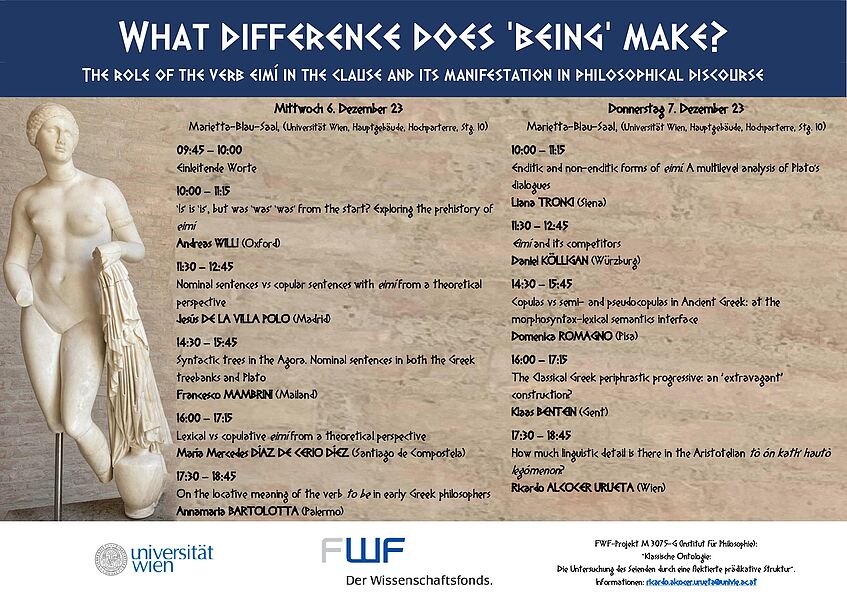
Lesekreis: De anima SS24

Lecture: "The Name of the Verb: On the Persistence of the Aristotelian View of the Copula in Formal Syntax"
We are pleased to invite you to the in-person lecture "The Name of the
Verb: On the Persistence of the Aristotelian View of the Copula in
Formal Syntax", which will take place on December 5, 2023
(Marietta-Blau-Saal, University of Vienna, Main Building).
Professor Andrea Moro will speak about the validity of the Aristotelian
interpretation of the verb "to be" in formal syntax.
The Name of the Verb
Beginning with the early works of Aristotle, the interpretation of the
verb "to be" and its equivalents across languages runs through Western
linguistic thought intertwining with philosophy, metaphysics, logic, and
even mathematics―so much so that Bertrand Russell showed no hesitation
in proclaiming it to be "a disgrace to the human race". Professor Moro
will show that this verb is still a scandal and, like a Trojan horse of
linguistics, it introduces disruptive elements that lead us to a radical
rethinking of the most basic structure of human language, the sentence,
paradoxically reviving Aristotle's original view.
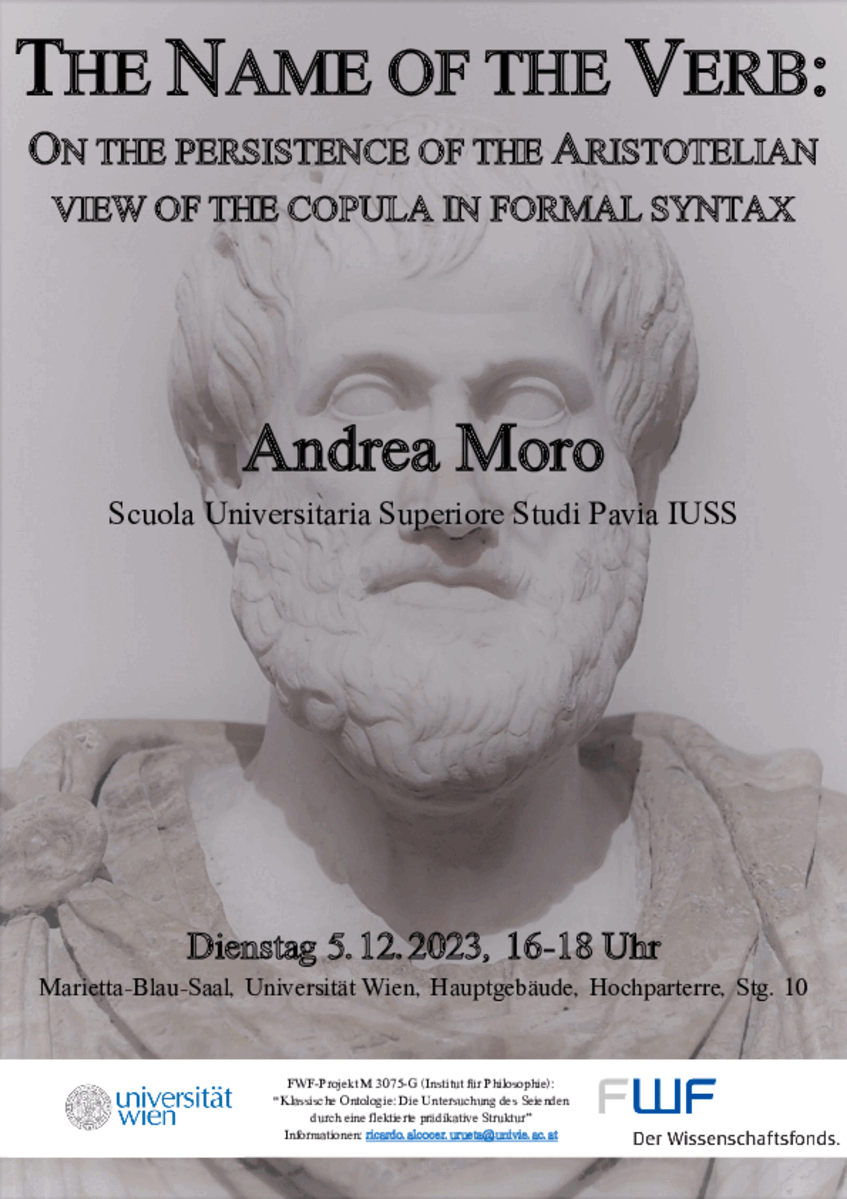
Lesekreis: Aristoteles De Anima III.6-11
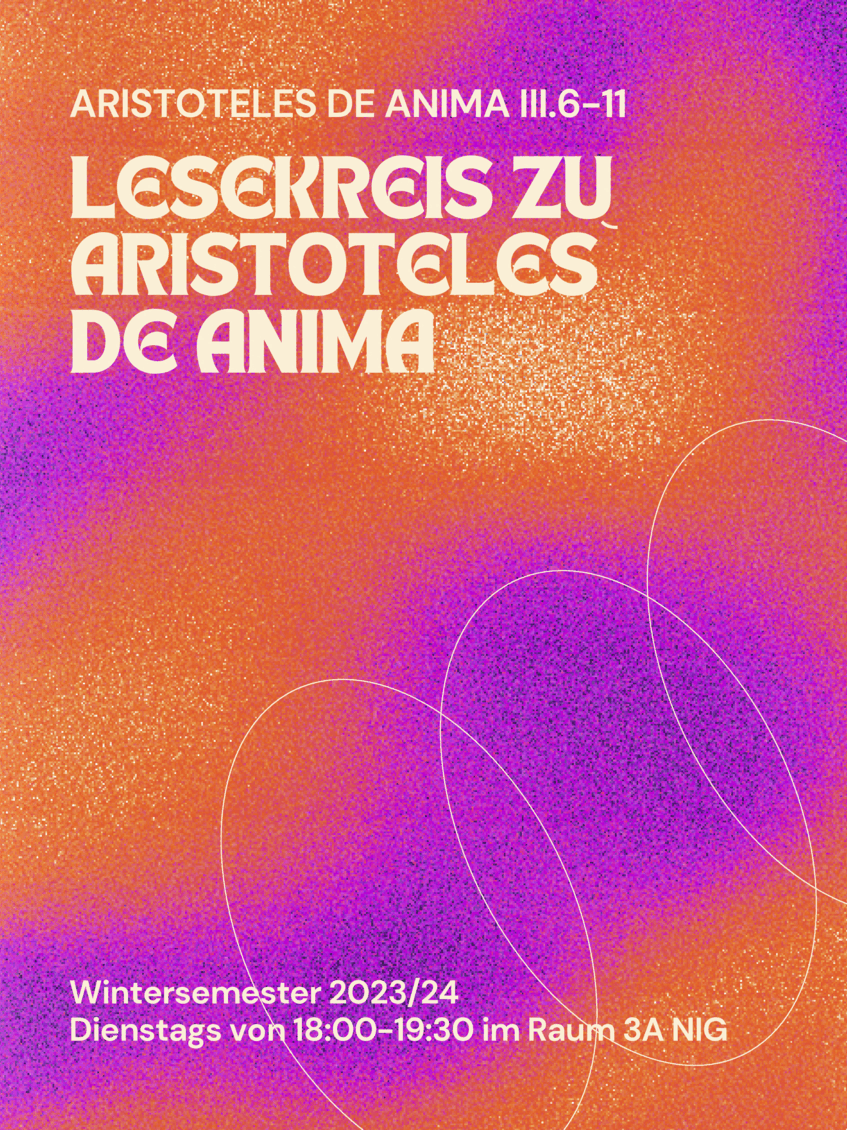
Vortragsreihe: Neue Texte der antiken Philosophie
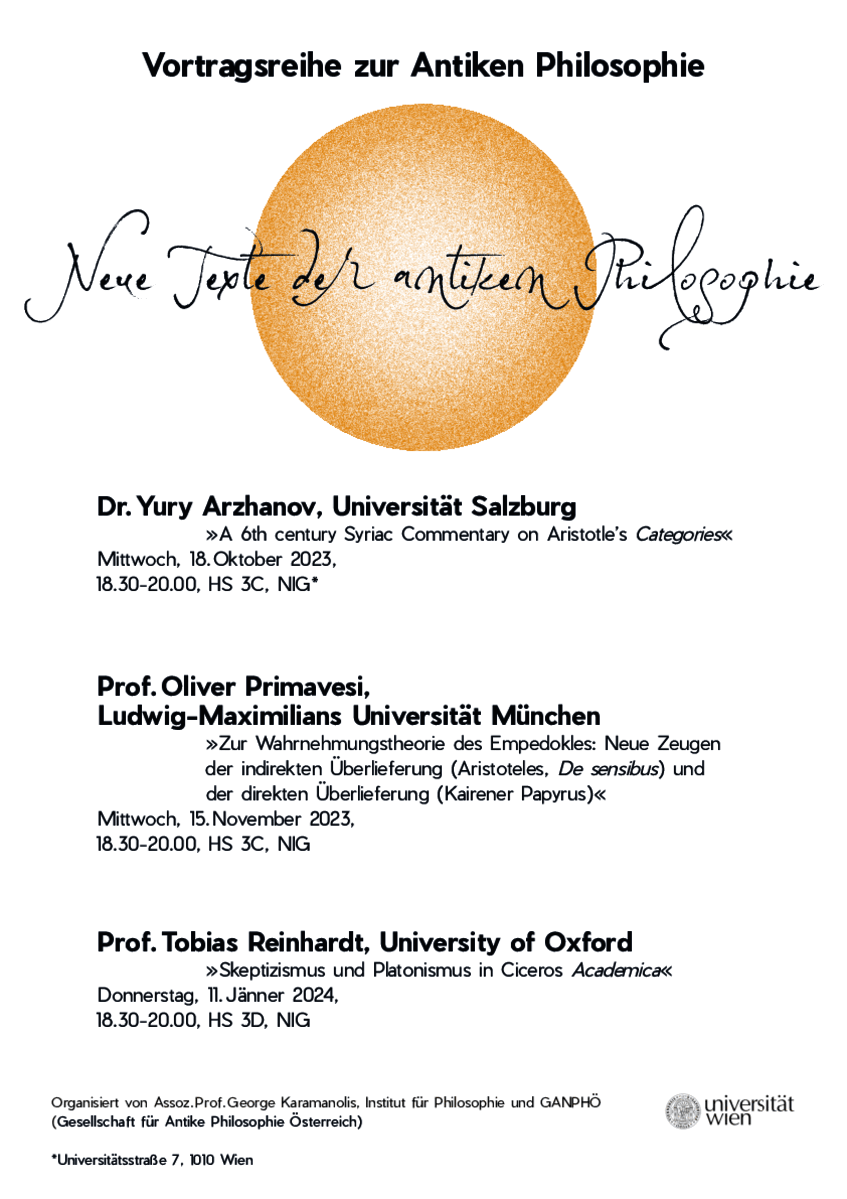
Colloquium "Being before Aristotle"
We are pleased to invite you to the (in person) colloquium “Being before Aristotle”, to be held on January 26 and 27, 2023, in the Marietta-Blau-Saal (University of Vienna, Main Building).
Confirmed speakers inlcude Lesley Brown, Mary Margaret McCabe, Aldo Brancacci, Michele Corradi, Francesco Fronterotta, Doukas Kapantis, and Jonas Schollmeyer. Find the full program here.
Details: Aristotle’s elaborate theory of the multiple senses of being did not come out of nowhere. It was the culmination of an epoch-making discussion on the logical and semantic function of the verb εἰμί ‘am’ (≈ to be), as well as on the relation of this verb to truth and reality. We are certainly capable of naming some of those who contributed directly or indirectly to the classical concept of being, but the details of each particular contribution are less well known than would be desirable. Parmenides and Plato are the most visible figures of this historical process, but other thinkers also influenced the philosophical concept of being as we find it in Aristotle. Mention should be made, for instance, of emblematic sophists, such as Gorgias and Protagoras, but also of lesser-known figures, such as Antisthenes. To shed light on the ancient Greek concept of being, the colloquium “Being before Aristotle” will bring together scholars working on this area. Each of them will focus on a single thinker and address at least one of the following questions: (1) Was there a theory of predication, definition, enunciation, proposition, or assertion before Aristotle? (2) Was there a logical or linguistic approach to the notion of being before Aristotle?
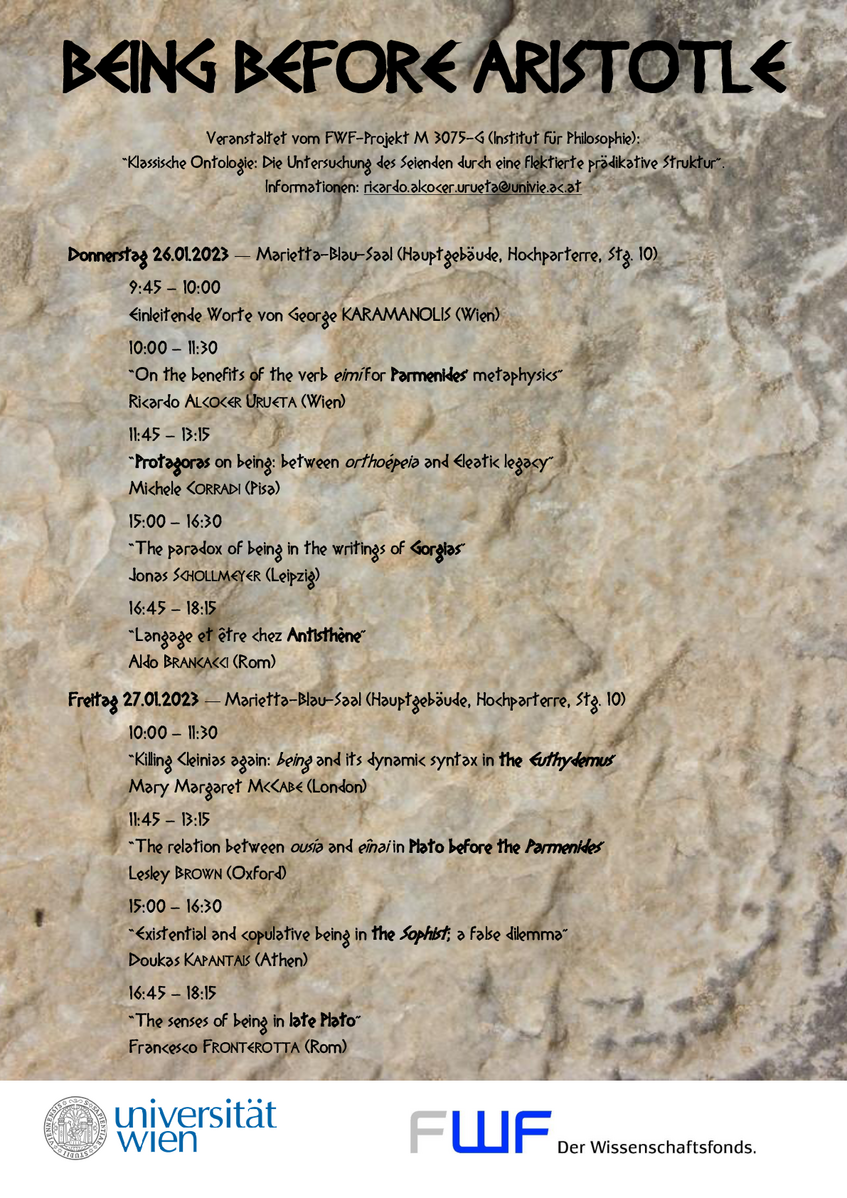
Third Central European Graduate Conference in Ancient Philosophy
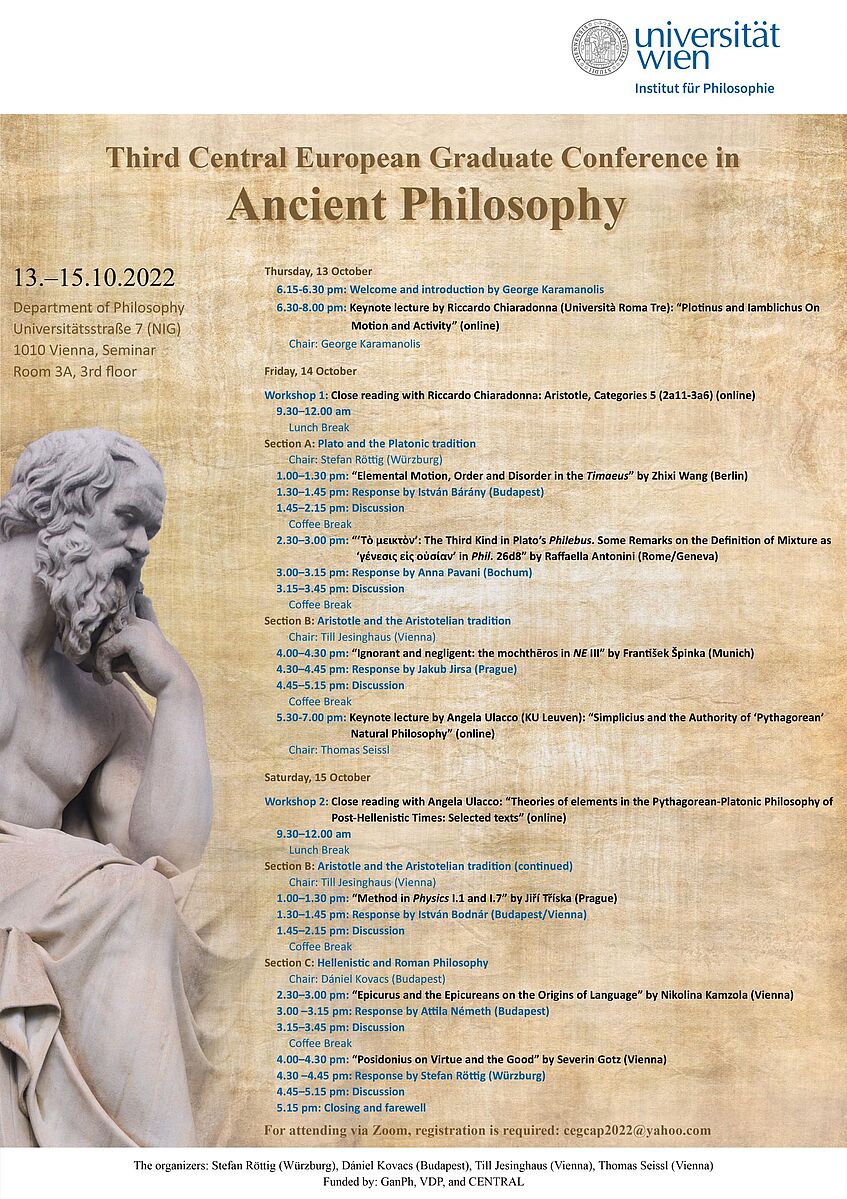
Workshop: Magna Moralia
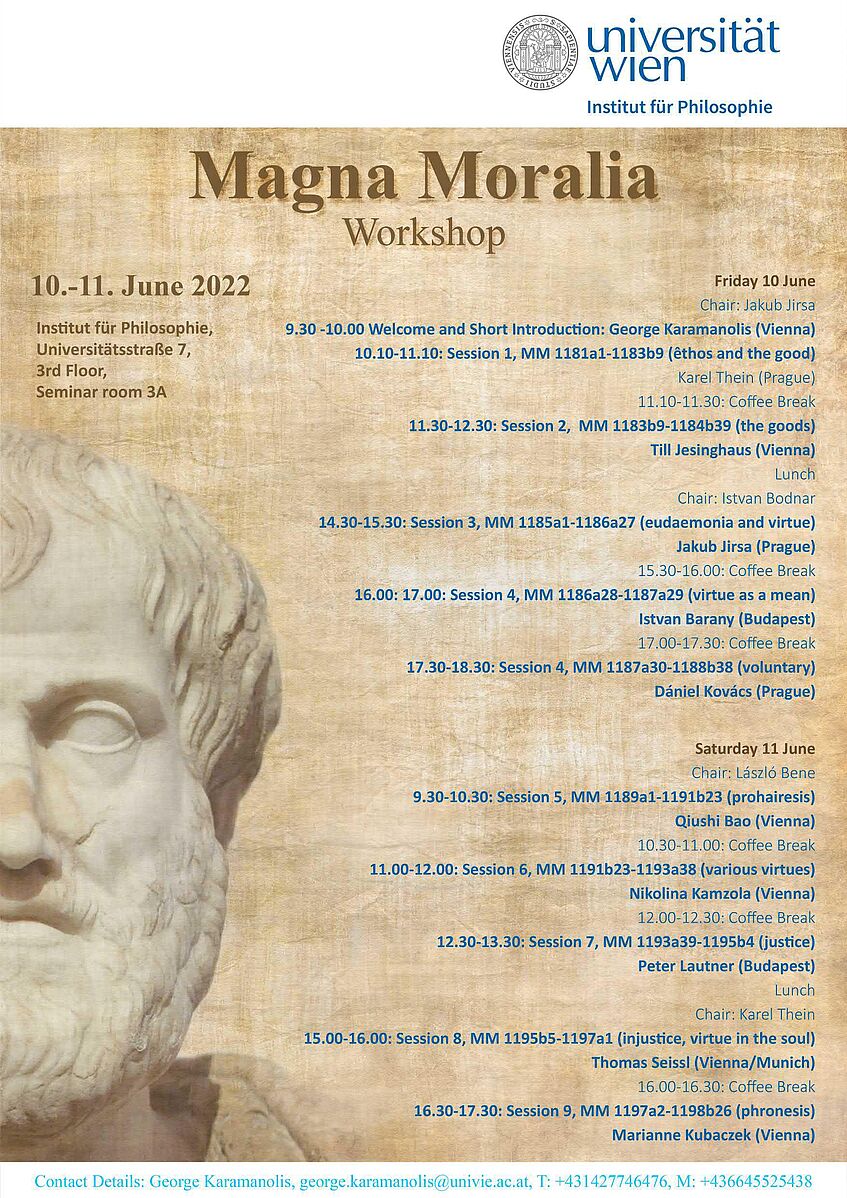
Workshop: Porphyry in Syriac - Porphyry's Treatise "On Principle and Matter"
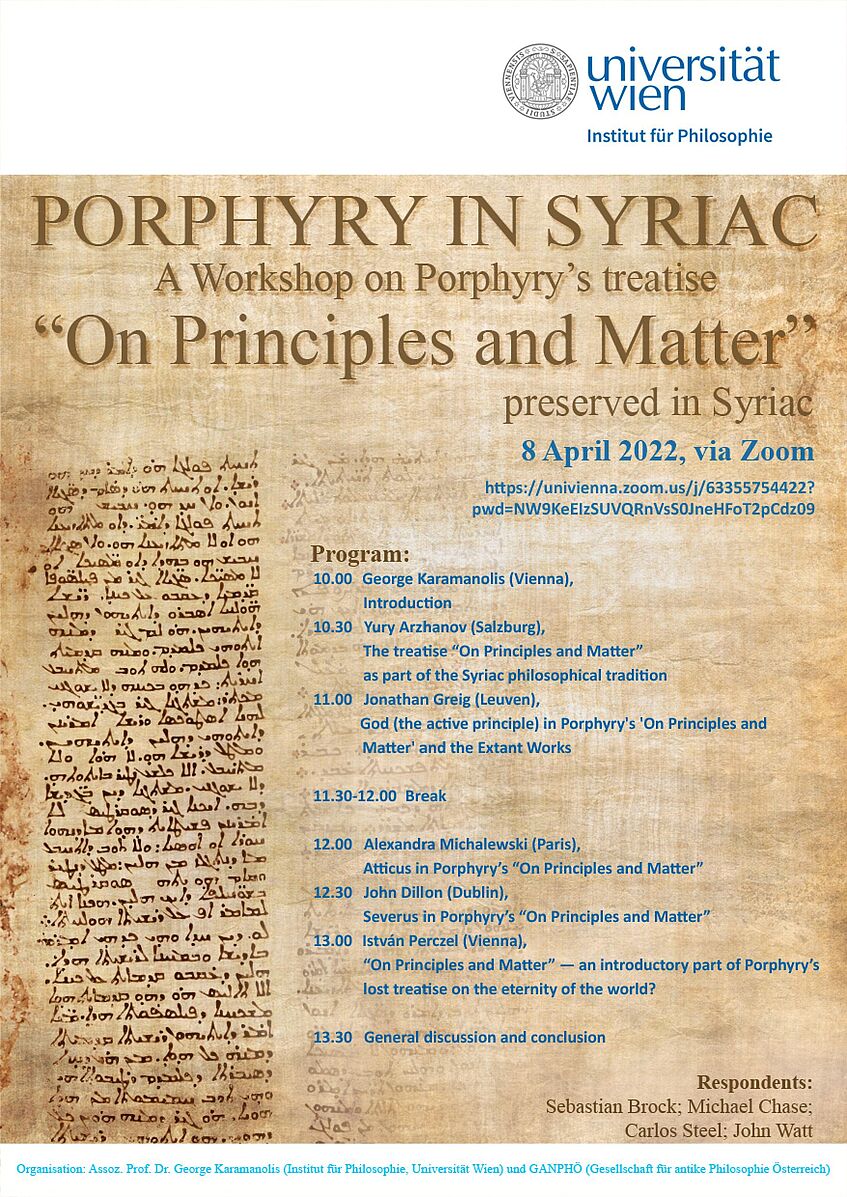
Lektürekreis AGORÁ im WS 2021/22
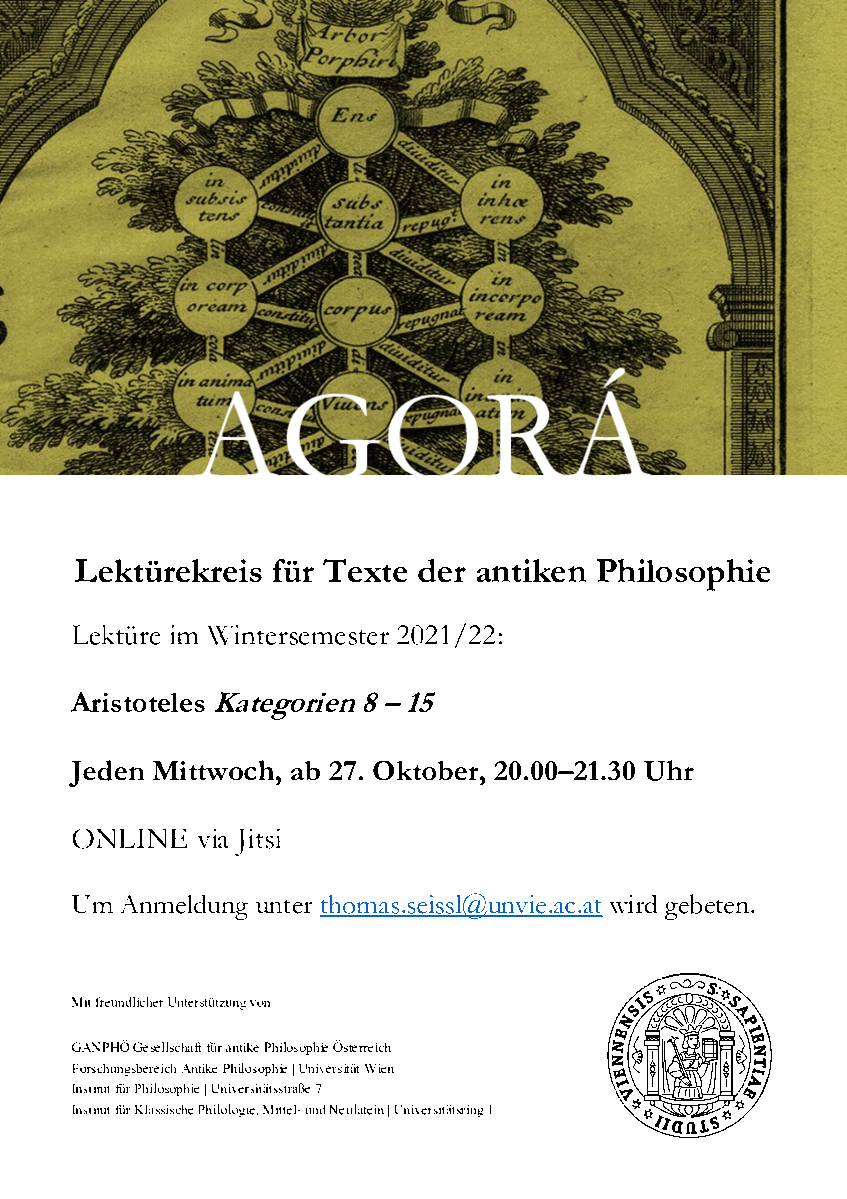
Lektürekreis AGORÁ im WS 2021/22
Auch in diesem Semester organisiert der Forschungsbereich einen wöchentlichen Lektürekreis für Forschende und Studierende der Institute für klassische Philologie und Philosophie. Wir setzen die Lektüre des vergangenen Semesters fort und lesen ab Mittwoch, 27.10.2021, Aristoteles' Kategorien ab Kapitel 8. Die Sitzungen finden wöchentlich online statt. Alle Interessierte sind herzlich eingeladen. Um Anmeldung wird gebeten.
Für das Plakat klicken Sie hier.
Zweite Auflage von "The Philosophy of Early Christianity" von George Karamanolis
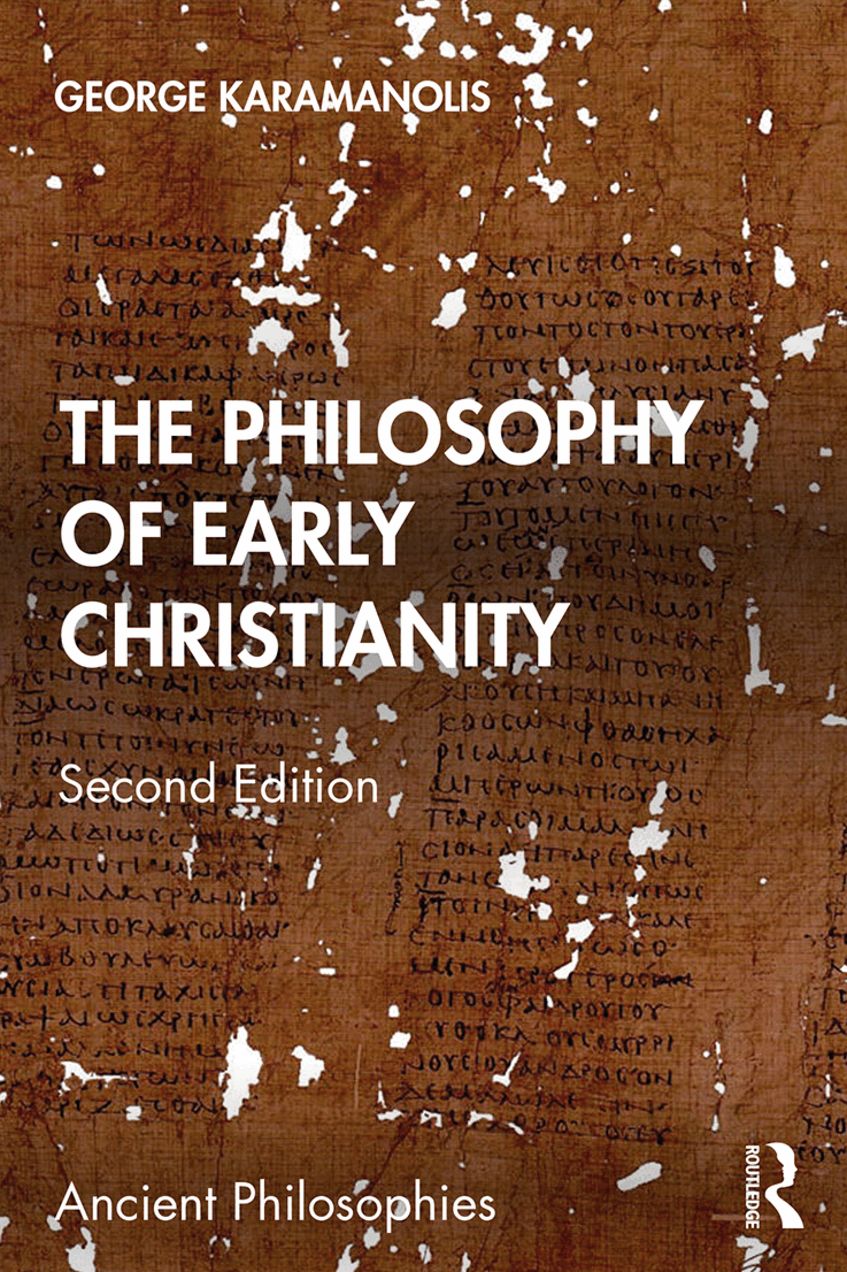
Zweite Auflage von "The Philosophy of Early Christianity" von George Karamanolis
Es freut uns, darauf hinzuweisen, dass die Monographie "The Philosophy of Early Christianity" von George Karamanolis nun in der zweiten Auflage bei Routledge erschienen ist. Diese überarbeitete Auflage berücksichtigt die jüngsten Forschungsentwicklungen auf dem Gebiet der späteren antiken Philosophie, insbesondere in der Philosophie des frühen Christentums, und integriert sie in die entsprechenden Kapitel, die eine Erweiterung erfahren haben.
Buchbeschreibung:
This new edition introduces the reader to the philosophy of early Christianity in the second to fourth centuries AD, and contextualizes the philosophical contributions of early Christians in the framework of the ancient philosophical debates. It examines the first attempts of Christian thinkers to engage with issues such as questions of cosmogony and first principles, freedom of choice, concept formation, and the body–soul relation, as well as later questions like the status of the divine persons of the Trinity. It also aims to show that the philosophy of early Christianity is part of ancient philosophy as a distinct school of thought, being in constant dialogue with the ancient philosophical schools, such as Platonism, Aristotelianism, Stoicism, and even Epicureanism and Scepticism. This book examines in detail the philosophical views of Christian thinkers such as Justin Martyr, Clement of Alexandria, Irenaeus, Tertullian, Origen, Basil, and Gregory of Nyssa, and sheds light in the distinct ways they conceptualized traditional philosophical issues and made some intriguing contributions. The book’s core chapters survey the central philosophical concerns of the early Christian thinkers and examines their contributions. These range across natural philosophy, metaphysics, logic and epistemology, psychology, and ethics, and include such questions as how the world came into being, how God relates to the world, the status of matter, how we can gain knowledge, in what sense humans have freedom of choice, what the nature of soul is and how it relates to the body, and how we can attain happiness and salvation.
Die aporetische Tradition in der Antike
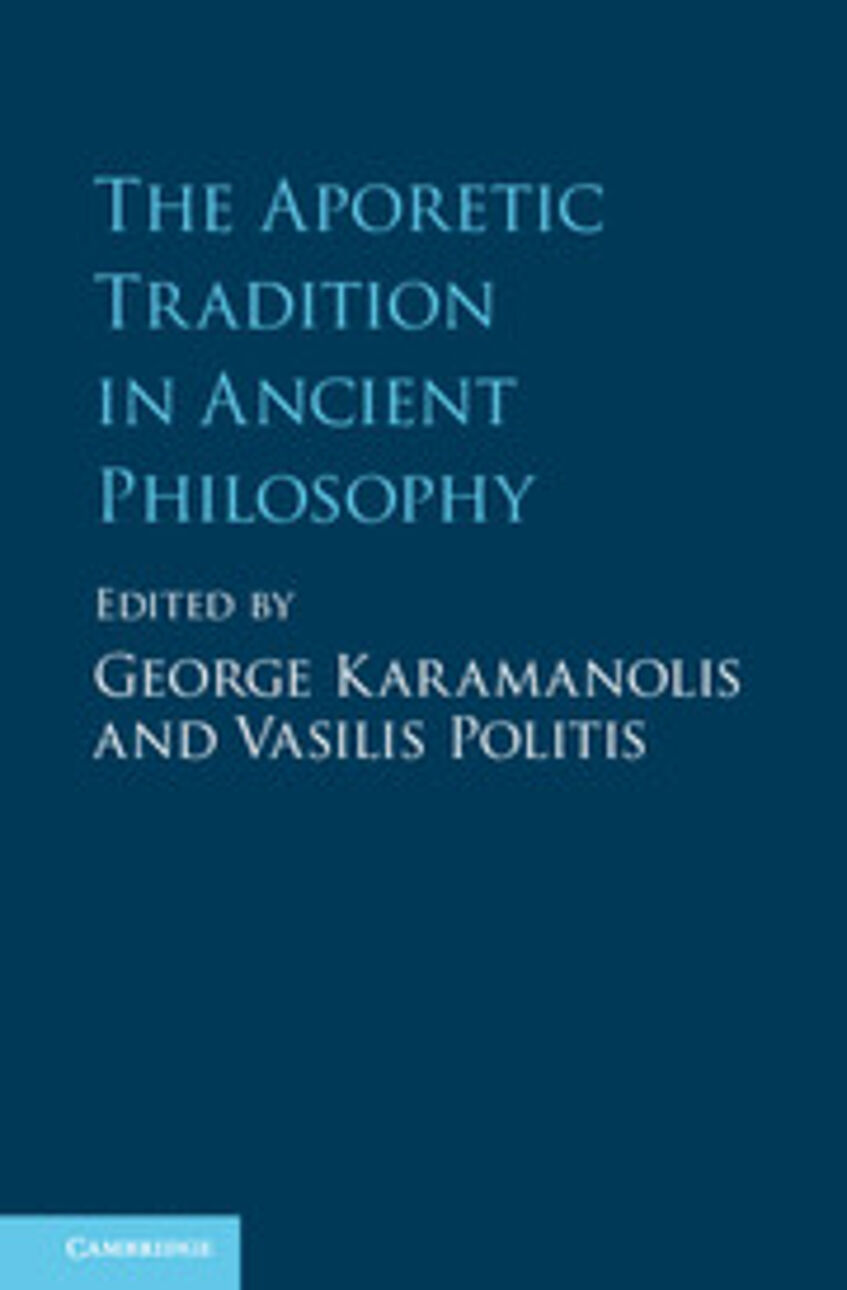
Die aporetische Tradition in der Antike
In dem neu erschienenen Sammelband, der von Prof. Karamanolis in Zusammenarbeit mit Prof. Vasilis Politis (Trinity College) herausgegeben wurde, wird die Aporie als maßgebliche Instanz philosophischer Verhandlungen in der Antike reflektiert. Neben der Analyse der unterschiedlichen Funktionen und Strukturen in den Philosophien der Vorsokratiker bis hin zum Neuplatonismus bietet die Zusammenstellung der unterschiedlichen Beiträge (u.a. von John Dillon, Friedemann Buddensiek und Christof Rapp) die erste umfangreiche Studie zur aporetischen Methodologie.
Der Sammelband ist bei Cambridge University Press erschienen
Pseudo-Aristotle: De Mundo (On the Cosmos)
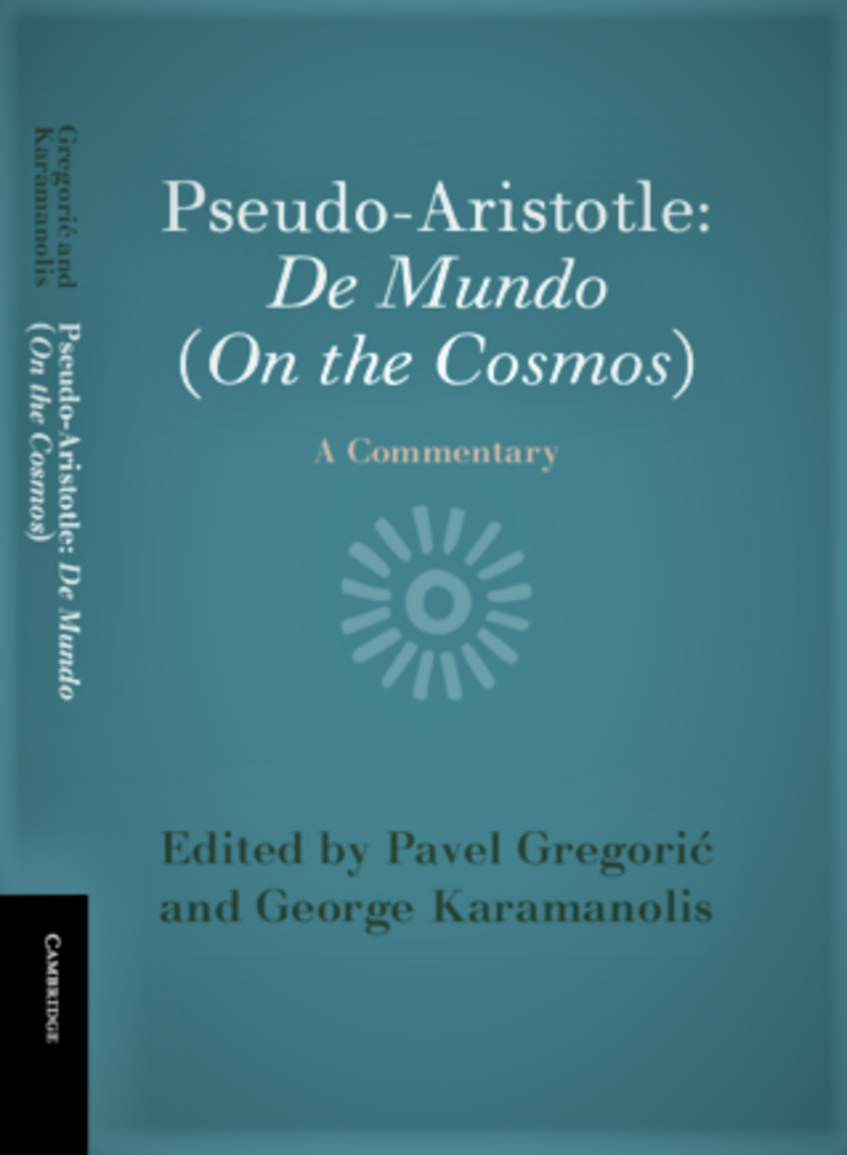
Pseudo-Aristotle: De Mundo (On the Cosmos)
Klappentext:
De mundo is a protreptic to philosophy in the form of a letter to Alexander the Great and is traditionally ascribed to Aristotle. It offers a unique view of the cosmos, God and their relationship, which was inspired by Aristotle but written by a later author. The author provides an outline of cosmology, geography and meteorology, only to argue that a full understanding of the cosmos cannot be achieved without a proper grasp of God as its ultimate cause. To ensure such a grasp, the author provides a series of twelve carefully chosen interlocking analogies, building a complex picture in the reader's mind. The work develops a distinctly Aristotelian picture of God and the cosmos while paying tribute to pre-Aristotelian philosophers and avoiding open criticism of rival schools of philosophy. De mundo exercised considerable influence in late antiquity and then in the Renaissance and Early Modern times.
Der Kommentar, herausgegeben von George Karamanolis und Pavel Gregoric, ist bei Cambridge University Press erschienen.
Neuerscheinung: "Leben in Gemeinschaft. Politische Anthropologie anhand Hesiod"
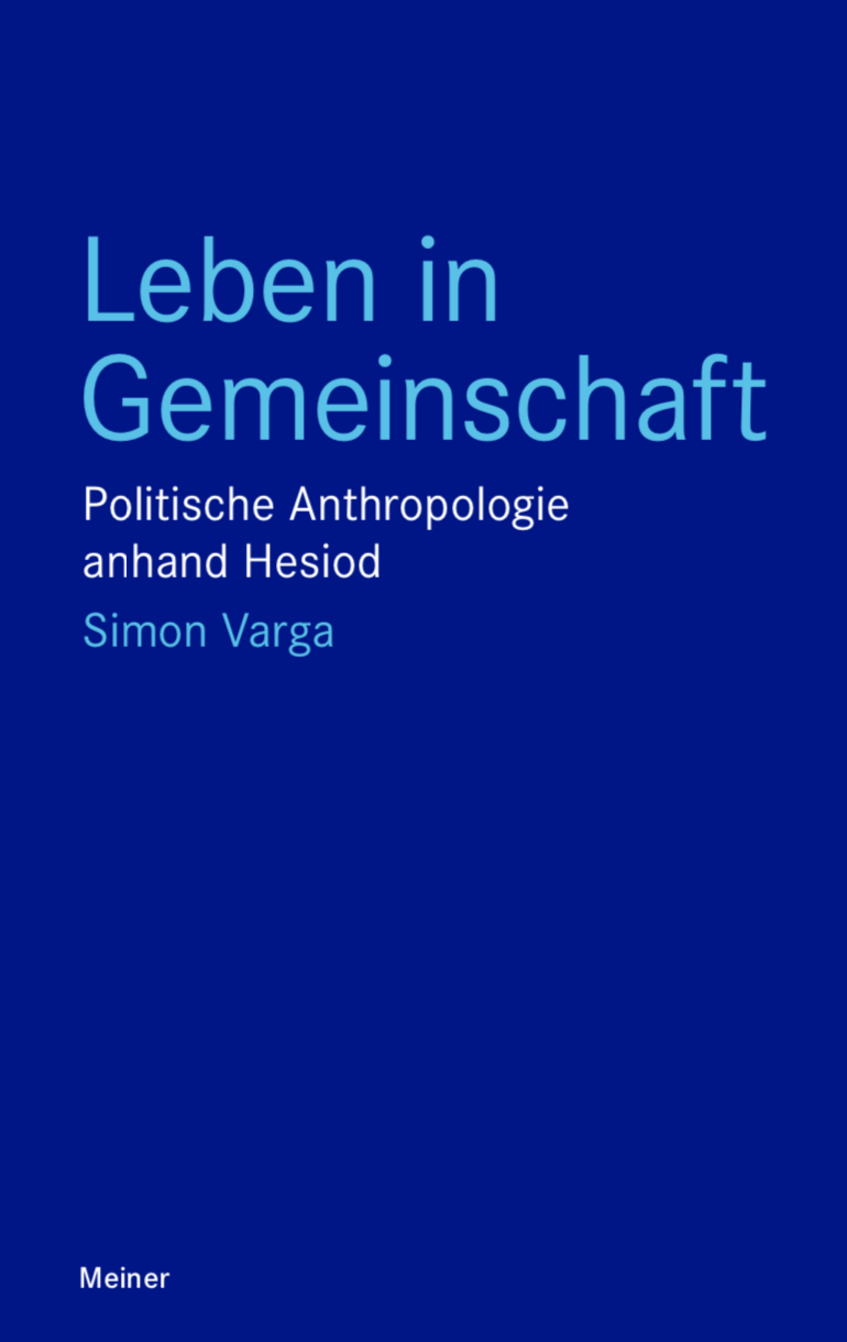
Neuerscheinung: "Leben in Gemeinschaft. Politische Anthropologie anhand Hesiod"
Simon Varga eröffnet in seinem Buch neue Perspektiven der Hesiod-Interpretation. Als "früher Vorsokratiker" ist Hesiod dabei besonders unter ethischen und politischen Gesichtspunkten von Interesse, zumal in "Werke und Tage" zentrale Themen des guten Lebens des Einzelnen sowie des gelingenden Zusammenlebens des Menschen in Gemeinschaft angesprochen werden: Wettstreit, Gerechtigkeit, Arbeit, Hausgemeinschaft, Freundschaft und "Spiritualität". Dennoch, so Hesiod, hat der Mensch in vielen Fragen der Lebensgestaltung vor allem eines: Entscheidungsfreiheit.
Das Buch ist in der "Blauen Reihe" des Meiner-Verlags
https://meiner.de/leben-in-gemeinschaft.html erschienen.
Paradoxien, die „Enzyme“ der Philosophie
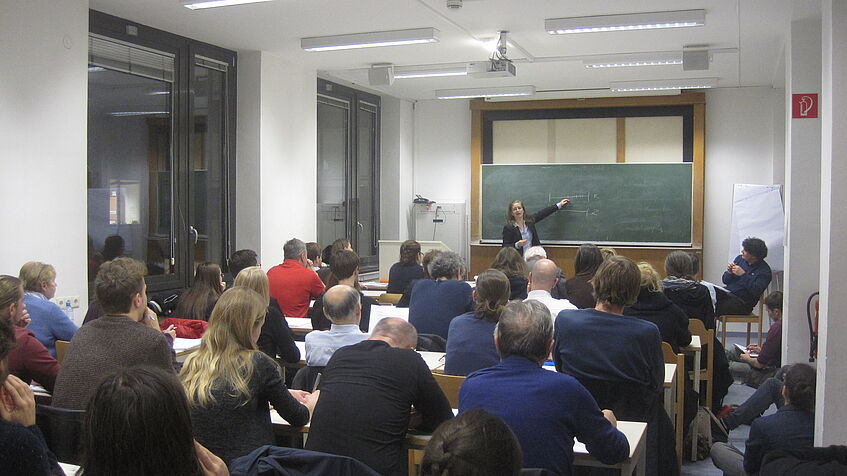
Paradoxien, die „Enzyme“ der Philosophie
In ihrem Vortrag zu den Raum- und Bewegungsparadoxien von Zenon gewährte uns Barbara Sattler (University of St. Andrews) vergangenen November einen Einblick in die bedeutsame Rolle von Paradoxien seit den Vorsokratikern. Insbesondere die Paradoxien zu Raum und Bewegung des Eleaten Zenon stellten einen wichtigen Prüfstein für die späteren Raumtheorien der Atomisten, Platon und Aristoteles (vgl. Buch VI) dar. Mit Zenon gelangte der Begriff des topos (griech. für Raum) nach seiner unauffälligen Verwendung bei Parmenides auf die Bildfläche des philosophischen Denkens. Seine Paradoxien (etwa Toposparadoxon und Dichotomieparadoxon) dürften als Veranschaulichung der parmenideischen Lehre vom Einen gedient haben und fungierten, wie Barbara Sattler formulierte, als „Enzyme“ hinsichtlich der Entwicklung von späteren Raumtheorien. Barbara Sattler, die derzeit eine Senior Lecturer Stelle an der schottischen Universität St. Andrews unterhält und unter anderem in Wien studierte, arbeitet derzeit an einer Monografie zur antiken Raumtheorien; ein weiteres Buchprojekt betrifft Zenons Paradoxien im Speziellen.
Neuer Uni:docs-Fellow Thomas Seissl im Interview
Seit diesem Herbst beforscht unser neuer Uni:docs Fellow Thomas Seissl das Problem des "Jetzt" bei Aristoteles aus Sicht der spätantiken Kommentatoren. Erfahren Sie mehr über ihn und sein Projekt in einem kurzen Interview hier

Studienreise nach Sizilien im September 2018
Vergangenen September fand in Zusammenarbeit mit dem Institut für Klassische Philologie und jenem der Byzantinistik und Neogräzistik eine Studienreise nach Sizilien statt. Neben interessierten Studierenden waren mit dabei: Dr. Christoph Schwameis, Prof. George Karamanolis und Mag. Katharina Schön.
Aufgrund des großen Erfolgs dieser Reise ist für kommendes Jahr eine weitere Exkursion geplant!
Klicken Sie hier zum Reisebericht einer Studentin
Glaubte Pythagoras tatsächlich an die Unsterblichkeit der Seele?
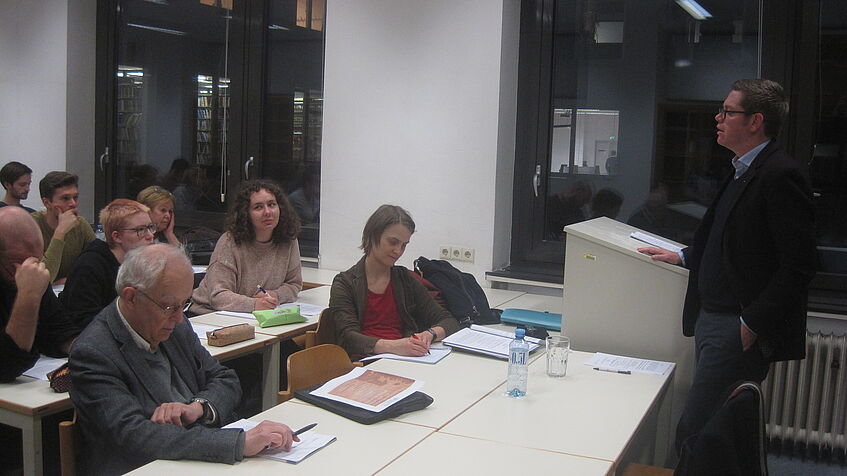
Glaubte Pythagoras tatsächlich an die Unsterblichkeit der Seele?
Mitte November des vergangenen Jahres besuchte uns Prof. Phillip Sidney Horky der Universität Durham (Plato and Pythagoreanism, OUP 2013). Im Rahmen seines Vortrags eröffnete er eine völlig neue Perspektive auf die Pythagoreer – und damit indirekt auch auf Platon: Dem Associate Professor zufolge ist es nicht ausgeschlossen, dass es sich bei der Ansicht, Pythagoras hätte an die Unsterblichkeit der Seele geglaubt, um eine womöglich vorschnelle Schlussfolgerung handeln könnte. In einem Close Reading entscheidender Zeugnisse zu Pythagoras zeigte Horky, dass die Linie, die man traditionellerweise zwischen Pythagoras und Platon zieht, hinterfragt werden kann: Viel naheliegender scheint es, dass Pythagoras bloß an die Metempsychose geglaubt hat – und nicht an die Unsterblichkeit der Seele. Damit wäre Pythagoras dem Denken der anderen Vorsokratiker weitaus näher als jenem Platons. Dies hätte selbstverständlich auch eine gänzlich veränderte Perspektive auf Platon zur Folge. Prof. Horkys Überlegungen sind ein eindrucksvolles Beispiel präzise angewandter Methodologie, welche zu einer gewissenhaften und eigenständigen Lektüre der Primärtexte ermutigen wie auffordern.
